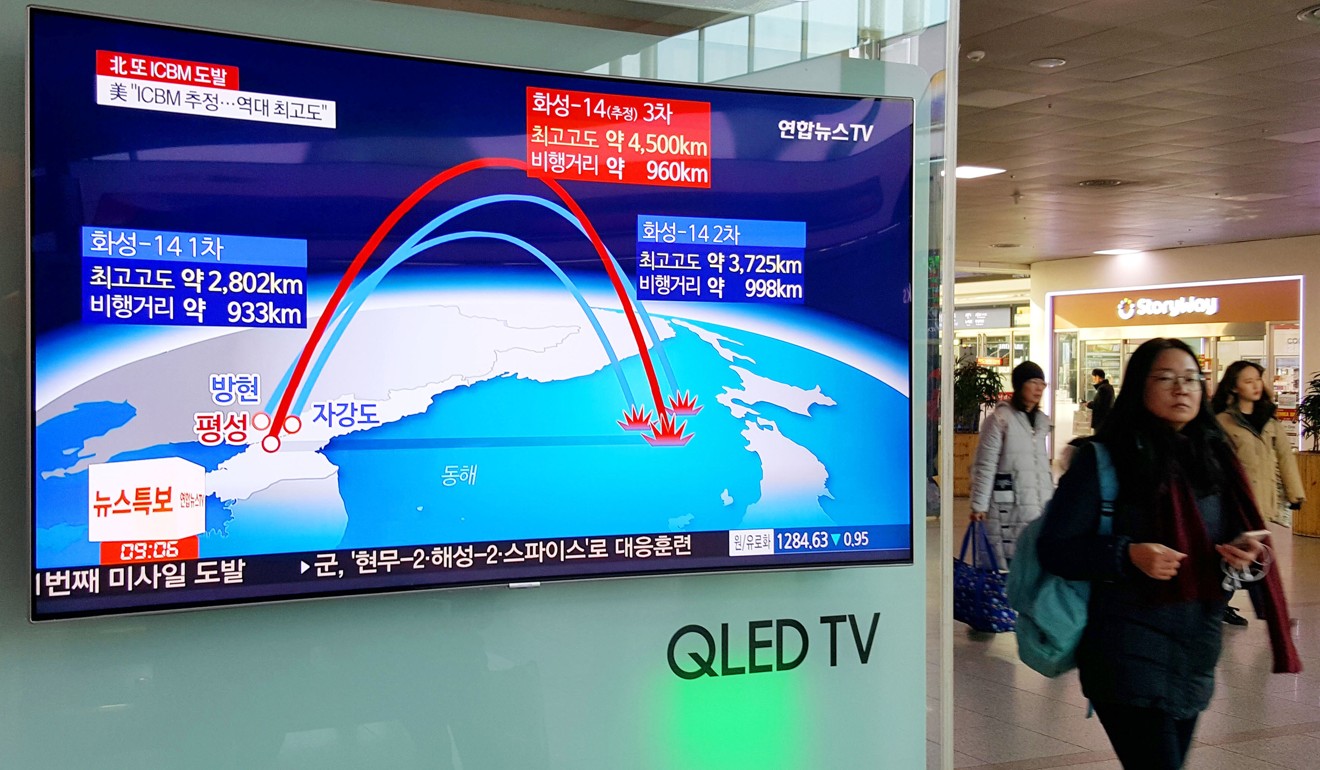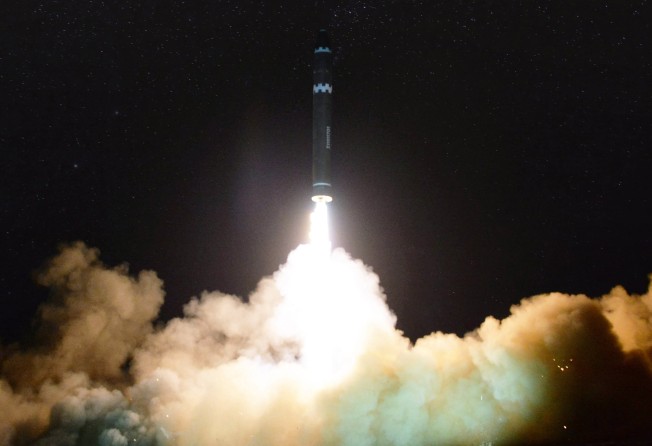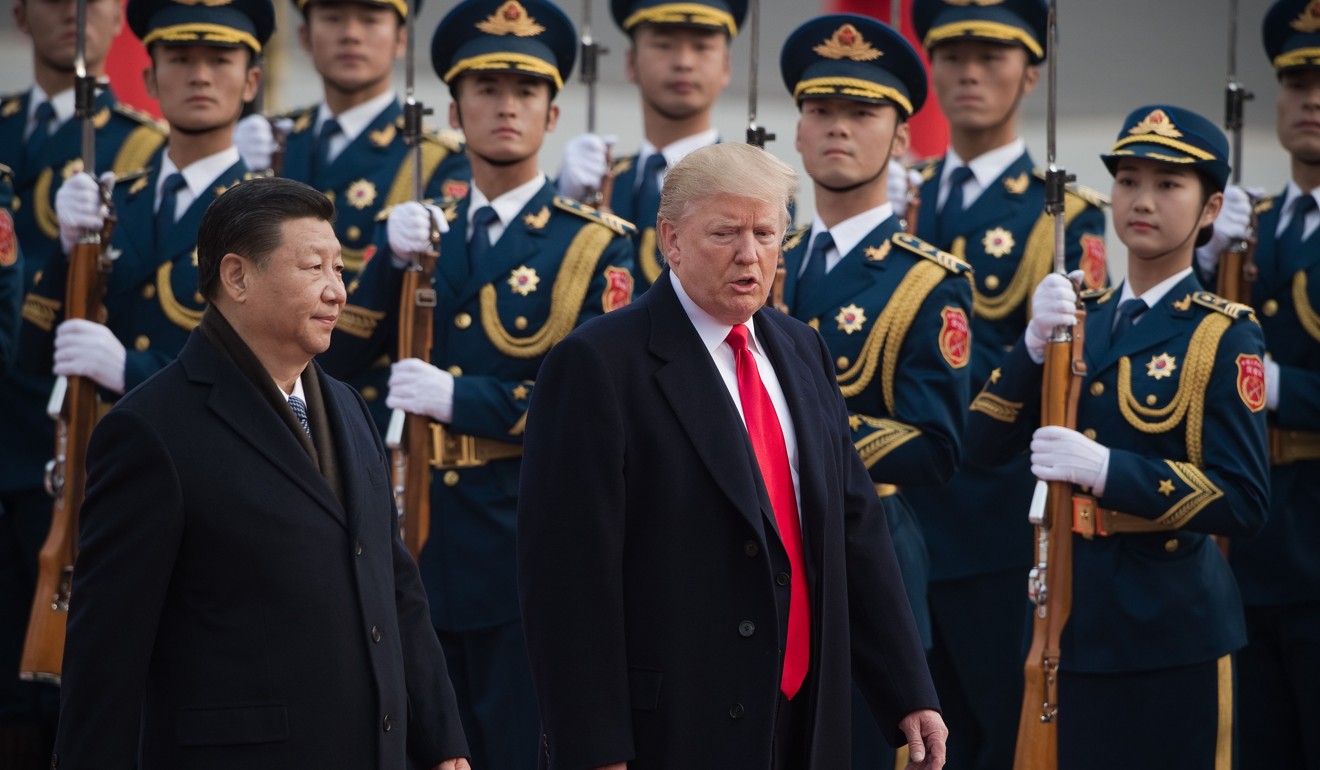
North Korea’s ICBM test: the storm before the calm?
Now the mainland United States is within range of a nuclear strike, Kim Jong-un may be ready to come to the table

Counter-intuitive as it may sound, the latest North Korean intercontinental ballistic missile test may actually set the stage for a reduction of tensions, rather than an exacerbation of the “crisis”. It may also set Washington up for a fool’s choice if we fail to understand Pyongyang’s logic and ultimate end game.
The United States, as it always does, is calling for UN Security Council action which is likely to result in Washington and Beijing arguing over the next few days (weeks? months?) about the next round of “severe penalties”. But Pyongyang may already be preparing its next move.

The test, according to official North Korean broadcasts, “meets the goal of the completion of the rocket weaponry system development set by the DPRK [Democratic Peoples’ Republic of Korea]”.
Pyongyang further announced that “Kim Jong-un declared with pride that now we have finally realised the great historic cause of completing the state nuclear force.”
In short, Pyongyang seems to be telling us (my words, not theirs): “We have made our point. Now that Washington knows we can indeed strike anywhere we want in the mainland US, we might be ready to talk, provided the US and the international community is prepared to reward us, not for good behaviour [i.e. verifiable steps toward denuclearisation], but for the absence of bad behaviour [a halt in testing since the current testing cycle is complete].”
This does not mean acceptance of the Chinese/Russian “freeze for freeze” proposal which swaps North Korea missile/nuclear tests for a halt or reduction in US military exercises. What Pyongyang really wants, and increasingly needs, is economic assistance and a lifting of sanctions, so Kim can deliver on his Byungjin promise of nuclear weapons and economic development.
My guess – when it comes to North Korea we’re all guessing – is that Pyongyang will soon offer to freeze further tests in return for humanitarian assistance and at least a partial lifting of sanctions. Its “compromise” will be to forego its threatened atmospheric nuclear test, which Pyongyang understands would completely galvanise the international community against North Korea. The big question is, will Washington fall for this ruse?
The Chinese and Russians is likely to applaud such an offer; they can at least claim partial credit since it involves a freeze. The current South Korean government, eager for an opportunity to engage with the North, is also likely to climb on board. Japanese Prime Minister Shinzo Abe is likely to warn against it, but his voice could be lost in the wilderness.

The real question is, will US President Donald Trump’s administration, eager for a “victory”, fall into this trap? Or, will it insist on a real freeze of the North’s nuclear and missile programmes, which would require intrusive inspections and verification, rather than just a halt in testing (more easily verified, but leaves Pyongyang’s nuclear and missile programmes intact)? A verifiable programme freeze, while not a sure path to eventual denuclearisation, would at least be a step in the right direction and would be worth pursuing, albeit carefully.
A mere freeze in testing is de facto acceptance of the North’s nuclear and missile programmes as they now stand. It undercuts the ongoing effort to compel Pyongyang to choose the right path – denuclearisation in return for economic assistance – by essentially letting the North have both.
It’s easy to become fixated with the crisis at hand. But, as we struggle to respond to this latest provocation, it’s important to keep their, and our, end game in mind. ■
Ralph Cossa is the president of Pacific Forum CSIS